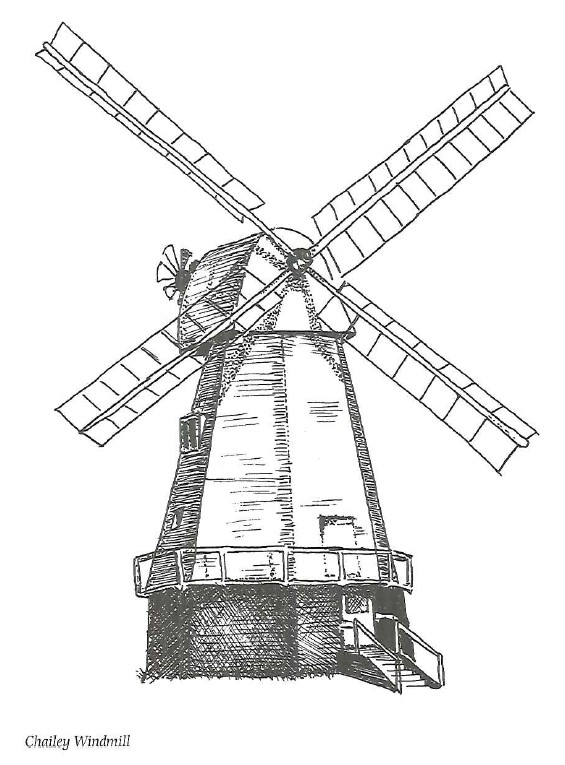Older people in the village still remember Paraffin Annie, also known as Oily Annie. She used to wheel an old pram around the lanes delivering fuel from door to door.
Annie, real name Alice Terry, lived in Manchester Road, Ninfield. An unlikely street name for a place hardly bigger than a hamlet, but there was a good reason. Manchester House, now the village shop and post office, used to be a depot for the Lancashire cotton goods from Manchester, from where they were distributed all along the south coast. The building also had strong smuggling connections and a secret passage is said to link it with Standard Hill House, a quarter of a mile away.
Standard Hill was by tradition the place where William the Conqueror raised his standard before the Battle of Senlac, a spurious legend which persists in the village sign depicting a Norman knight on horseback.
The old house on the site, the home of bird illustrator Basil Ede, is intriguing, with three texts on the outer walls and the date 1659: ‘God’s Providence is my Inheritance’; ‘Except the Lord Build the house they’d labour in vain that build it’; and “Here we have no abidance’. They seem to have a strong Puritanical theme. Could the latter text simply be a comment on man’s brief mortal span or is it a statement to the world at large that no Royalists were hidden away there? If so, this beautiful lettering was almost too late; the Restoration of the Monarchy came in 1660.
One of the treasures in a village that once boasted two windmills is the village stocks and whipping post, beautifully preserved because they are made of iron instead of wood. The transgressors of the law could be catered for in pairs: There are four holes for ankles and four wrist clamps on the upright post. It was here, in 1790, that a wife was sold for half a pint of gin.
The United Friends did its bit for European harmony when Britain joined the Common Market by changing the pub sign to the hands of peace symbol as on the 50p piece.
